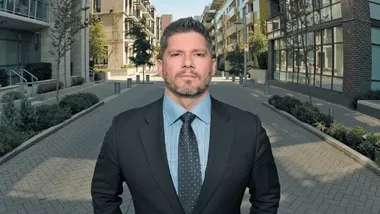Long before I arrived here, I've been a fan and student of Vancouver city-building.
Long before I arrived here, I've been a fan and student of Vancouver city-building.
It would take many posts to fully explain the generations of decisions, attitudes, approaches and tools that have led to the global attention now given to our planning and design successes. Vancouver isn't perfect, but I do believe that this city's story has much to teach. Given that, we do our best to accommodate a portion of the many international requests for tours, delegations, speakers, articles etc. routinely received to discuss Vancouver's planning approach.
There are, for those of you with an interest, some great books out there on the subject, from John Punter's The Vancouver Achievement, to Lance Berelowitz's Dream City: Vancouver and the Global Imagination, to the new, easy to read City Making in Paradise: Nine Decisions that Saved Vancouver by former Mayor and Provincial Premier Mike Harcourt and former Chief Regional Planner Ken Cameron.
But because we're not perfect, we also have much to learn from other world cities that are doing some things much better, or at least differently, than we are. We should continue to be both teachers and learners, and must view our successes and challenges with constructive candour.
Luckily we are also a "destination" of sorts for great urban thinkers that we can learn from, and have many wonderful facilitators of public urban dialogue here in the city (the best, arguably, being Simon Fraser University's downtown City Program, run by fellow planetizen blogger Gordon Price).
We passionately jump on every opportunity to learn from the best urban thinkers who come to town, and the conversations tend to be public, not just "professional". Just in the past few weeks, we've had idea-shaking visits from Jan Gehl from Copenhagen, Douglas Farr from Chicago, the ubiquitous Andres Duany from Miami, Jim Kunstler from New York State, etc. etc., all with exceptional turnouts from the public, associated newspaper or radio stories, etc. This level of strong public understanding and discourse on city-building issues is absolutely critical as we move forward, as an engaged city, to find what is starting to be called locally a "next level of urban achievement."
Can Vancouver do this? Can we reach another level of urban achievement? With growing challenges around sustainability and climate change, general affordability, homelessness, urban competitiveness, etc, we will have to. It will involve learning from the best global thinking, while continuing to foster a robust local dialogue and education around city-building.

Analysis: Cybertruck Fatality Rate Far Exceeds That of Ford Pinto
The Tesla Cybertruck was recalled seven times last year.

National Parks Layoffs Will Cause Communities to Lose Billions
Thousands of essential park workers were laid off this week, just before the busy spring break season.

Retro-silient?: America’s First “Eco-burb,” The Woodlands Turns 50
A master-planned community north of Houston offers lessons on green infrastructure and resilient design, but falls short of its founder’s lofty affordability and walkability goals.

Test News Post 1
This is a summary

Analysis: Cybertruck Fatality Rate Far Exceeds That of Ford Pinto
The Tesla Cybertruck was recalled seven times last year.

Test News Headline 46
Test for the image on the front page.
Urban Design for Planners 1: Software Tools
This six-course series explores essential urban design concepts using open source software and equips planners with the tools they need to participate fully in the urban design process.
Planning for Universal Design
Learn the tools for implementing Universal Design in planning regulations.
EMC Planning Group, Inc.
Planetizen
Planetizen
Mpact (formerly Rail~Volution)
Great Falls Development Authority, Inc.
HUDs Office of Policy Development and Research
NYU Wagner Graduate School of Public Service


























